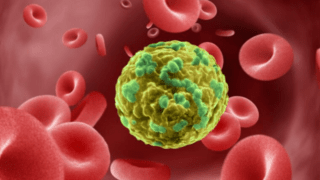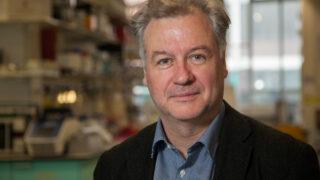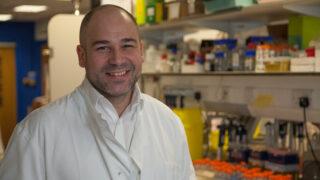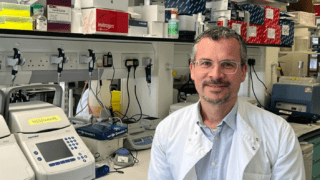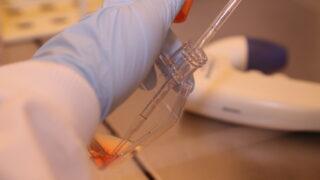Tag: Drugs
Search News
Categories
Archives
Professor Thomas Powles selected as one of Nature’s top ten people who shaped science in 2023
15th December 2023
Professor Powles has been recognised for his transformative clinical work delivering a life-extending treatment for severe bladder cancer.
Read moreScientists uncover a promising strategy to combat leukaemia resistance
18th May 2023
Research reveals a vulnerability in leukaemia cells that causes them to fill with toxic fatty acids
Read moreClinical trial shows tumour-starving drug improves survival of mesothelioma
16th April 2023
An innovative therapy provides new hope to patients with malignant mesothelioma – a rare but rapidly fatal type of cancer with few effective treatment options – according to results presented by Professor Peter Szlosarek and his team at Barts Cancer Institute, Queen Mary University of London.
Read moreVitamin B5 could improve red blood cell production in people with myelodysplastic syndromes
2nd March 2023
Scientists from Barts Cancer Institute at Queen Mary University of London and the Francis Crick Institute, have uncovered why patients with a rare type of blood cancer suffer from ineffective red blood cell production, and how vitamin B5 could be combined with existing drugs to improve outcomes.
Read moreIn conversation with Professor Marco Gerlinger
20th May 2022
This International Clinical Trials Day, we spoke with Professor Marco Gerlinger. Professor Gerlinger and his team’s laboratory research focuses on understanding and overcoming drug resistance in bowel and gastro-oesophageal cancers, and identifying new and more effective ways to treat these cancers using immunotherapies and combination therapies.
Read moreRewiring the biology of leukaemia cells to reverse drug resistance
20th April 2022
Researchers from Barts Cancer Institute at Queen Mary University of London have identified a way to reverse resistance to a group of cancer drugs, known as kinase inhibitors, in leukaemia cells. By rewiring the inner workings of the cancer cells, the team was able to prime leukaemia cells for sensitivity to treatment in the laboratory.
Read more

